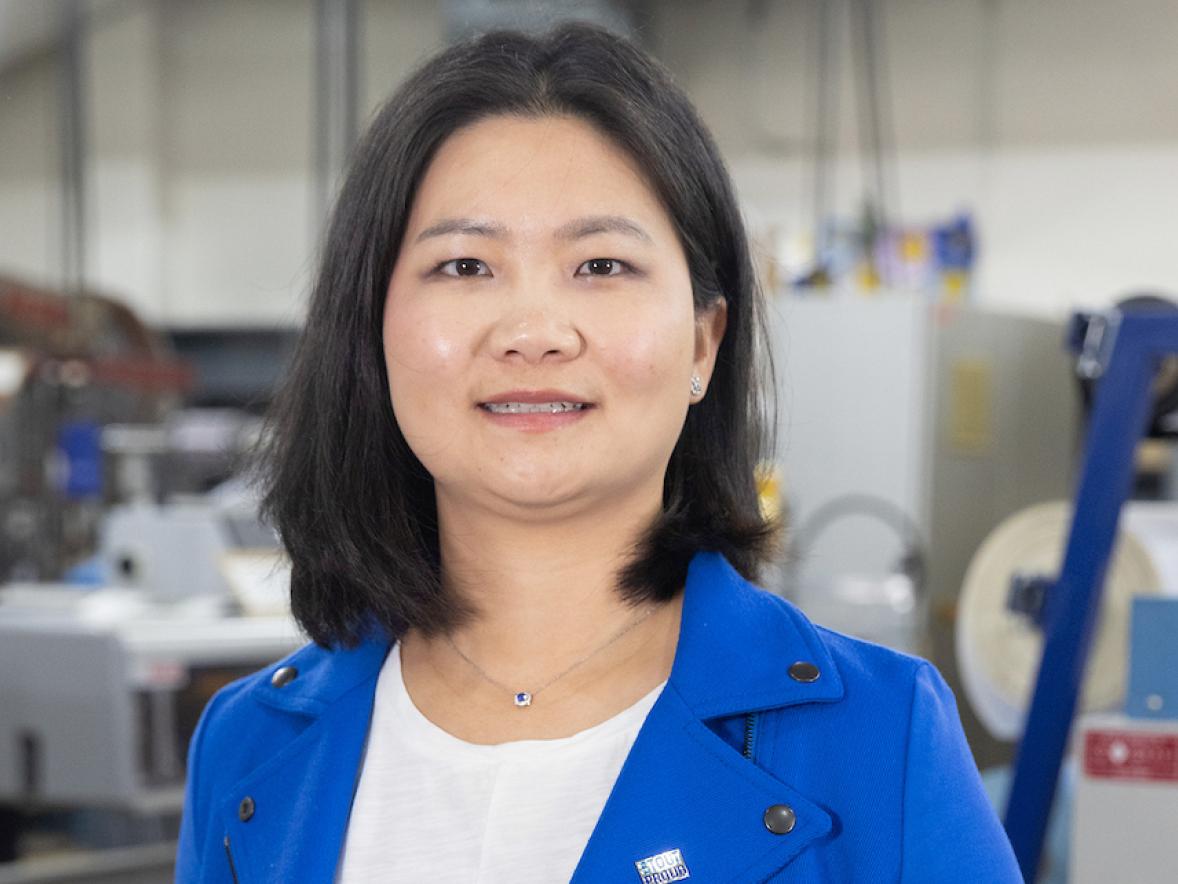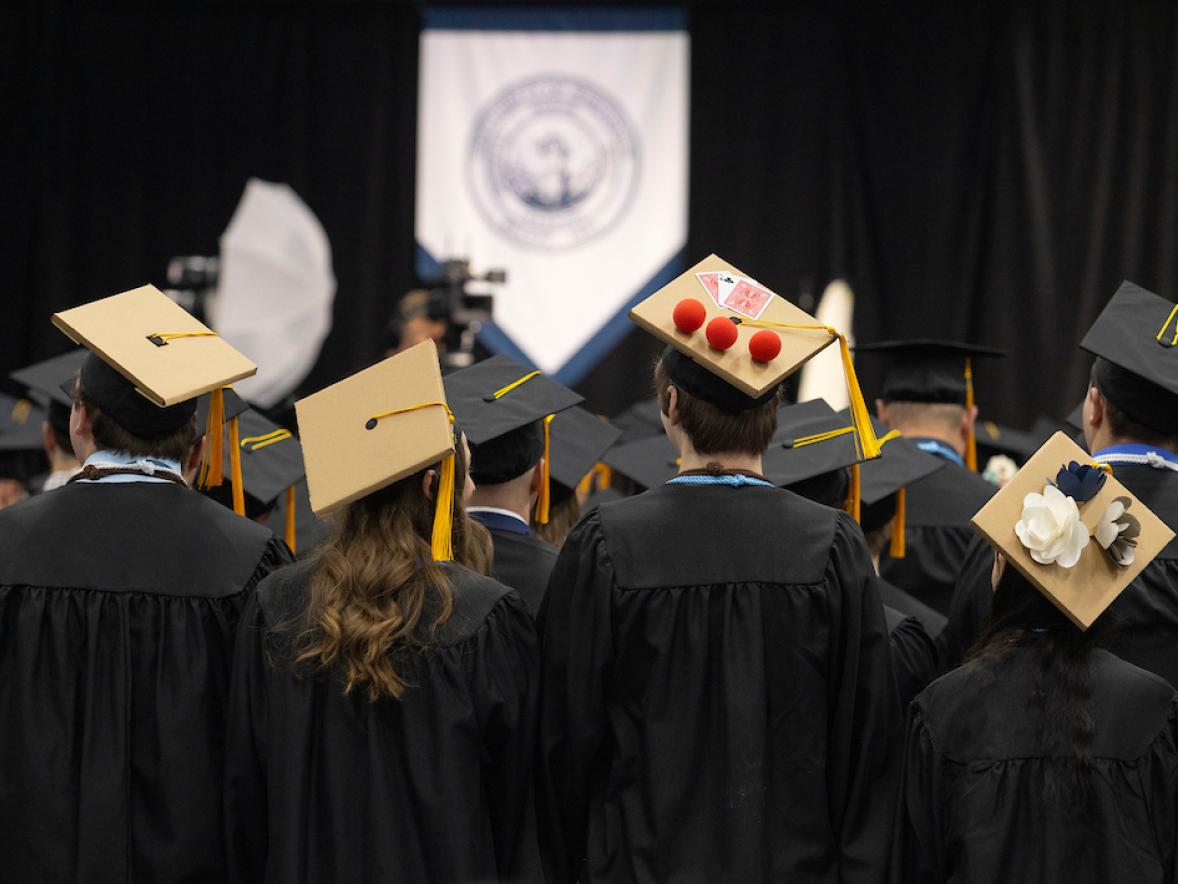University of Wisconsin-Stout is known for its career-focused learning.
However, the university is becoming the envy of other institutions for its minor in applied peace studies filling students’ educational needs and helping to build a lifelong skill to deal with conflict, said Jim Handley, senior lecturer in peace studies and geography.
Handley is executive director of the Wisconsin Institute for Peace and Conflict Studies, a nonpartisan consortium of private and public colleges and universities dedicated to enriching academic and public discourse on issues of peace and conflict.
Handley, who has been a member of the institution for about 19 years, was elected as executive director in 2020. The term is one year, but most executive directors end up serving three years, he noted.
Peace studies allow students to build a unique skill set to deal with conflict in their lives and their careers and to reconcile conflicts nonviolently, Handley said.

“Right now, I believe, and many people believe, this is a time of change,” Handley said. “We need our students and graduates to understand how to go into their communities and change social conditions to make it better for everybody. We need a concentrated effort to build justice and peace into our curriculum.
Handley became involved with the institute because it allowed him to meet people involved in peace education regardless of their careers and to bring that knowledge back to the classrooms at UW-Stout. “I get to see a wide variety of approaches, which has helped me become a well-rounded peace educator,” he said.
The institute offers a speakers program, providing experts to talk on a variety of topics including racial justice, peace-building, human rights, global issues, elections, politics, ethics and psychology. Handley speaks on racial justice, peace-building’s role in community conflicts, theory and practice of nonviolent social change, peace studies curriculum development, elections and food justice.
“I have had speakers come into my classrooms who have specific experience in a particular topic, and that gives students a different perspective and more expertise,” Handley said.
Changing society for the better
UW-Stout started its peace studies program about seven years ago, Handley said. “UW-Stout, because of its peace studies program and what we have been able to build, is the envy of a lot of institutions right now,” Handley noted. “When it was first proposed we didn’t realize it filled such a niche. Students want to understand and learn how to change society and their communities for the better.”
The statewide institute helped Handley realize UW-Stout is part of a bigger movement in education encouraging students, educators and the public to become engaged global citizens working toward a just peace.
Kathryn Blakeman, administrative director for the institute, said the role of the executive director is to lead the organization, promote its activities and foster cooperation and collegiality among the members for the benefit of faculty, program development and opportunities for students.

“Jim is a great leader,” Blakeman said. “He has a strong commitment to peace studies and nonviolence principles and to creating opportunities for students to present research, engage in activism and develop as leaders.”
The institute offers an annual conference for faculty and students. The conference brings together students and faculty from across the state to talk about different peace and conflict studies topics.
“A nice benefit of membership to students and faculty is the opportunity to interact and learn from peers from different parts of the state and at different institutions,” Blakeman said. “There is a real energy to the exchange of ideas and experiences at our conferences. They are also a great way to recognize student research and achievement.”
The institute also gives out the Dick Ringler Distinguished Peace Educator Award, which recognizes someone who has made a notable contribution to teaching or studying peace and conflict studies.
Student Scholar and Student Activist awards are given out annually from the institute. The scholar award recognizes outstanding scholarship in peace and conflict studies. The activist award recognizes an outstanding contribution to activism related to peace and justice issues by a student or student group.
Teach and learn from one another
UW-Stout alumna Rohini Singh, who lives in Minneapolis and graduated in 2016 with a degree in applied social science and a minor in peace studies, earned the student activist of the year award from the institute.
“WIPCS provides a space for students and educators who experience our world from an array of lenses to teach and learn from one another,” Singh said. “As a bisexual woman of color, this was an introduction to a realm that embraced my identity, nourished my mind and equipped me with the language and communication skills necessary to elevate my voice as well as those around me.
“I have the capacity now to think critically and tackle the injustices too many are faced with. The enormity and sheer weight of what we see in our society even today is a fraction lighter because I have the tools and the community to eventually defeat it. I will never be able to repay WIPCS or my professors in the applied social science program for the guidance, compassion and knowledge I was given.”

Singh said the peace studies minor at UW-Stout was a lifetime gift.
“We are incredibly lucky to have an institution and professors who offer peace studies as an area of study,” Singh said. “It’s frustrating to experience and witness discrimination without having the language or historical knowledge to understand what’s happening or why. It’s even more frustrating not having the means to combat it. The peace studies program gave me those things. Like WIPCS, the courses in the peace studies minor allow students to learn how to think critically, communicate effectively and meaningfully and hear the stories of real human beings who brought about monumental change.
“You learn that it doesn’t take a particularly special kind of person to demand and effect change; it simply requires love and action. I cannot stress enough how immensely important it is for students to be exposed to the social sciences, specifically how they pertain to nonviolence and structural violence. Once exposed, it is nearly impossible to un-see the truths of our society. The consciousness is suddenly awakened, which inevitably impacts your very core," Singh said.
UW-Stout has about 30 students pursuing the minor in peace studies. However, about 70 students take part in a peace studies course every semester from majors across campus, Handley said, further proving the importance of peace studies to many students.






